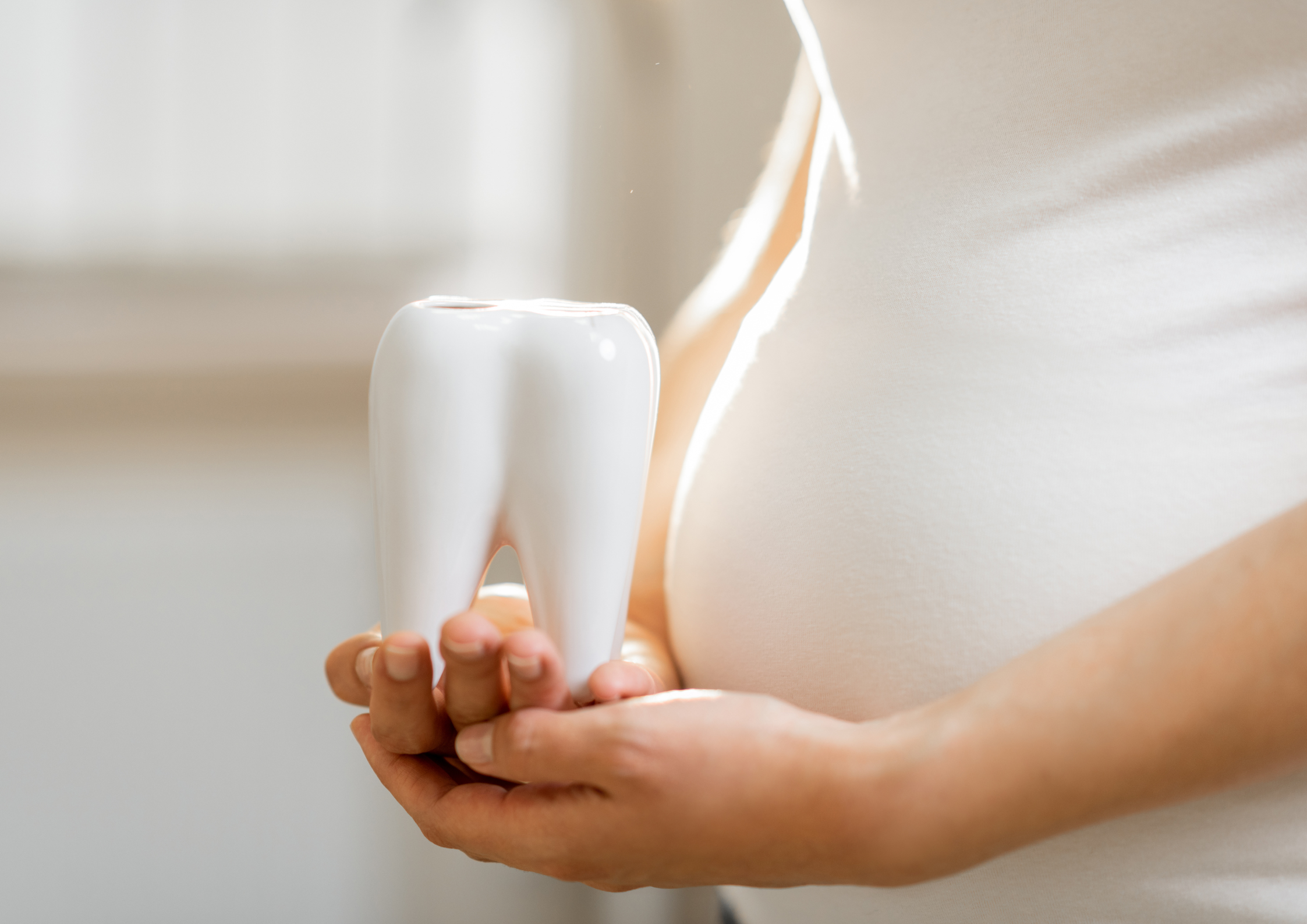
19 Nov Pregnancy and Oral Health
Pregnancy can be a demanding time for your body – that includes your teeth and gums. These is a misconception that “you will lose a tooth for every child” or that “your children took all the calcium from your teeth” These comments simply aren’t true, however, pregnancy can actually increase your risk of developing oral health problems such as tooth decay and gum disease.
By following good oral hygiene and visiting your Sensational Smiles dentsit regularly, you can help lower the health risks for both you and your child. Below are some common issues and questions that you may have during pregnancy.
Can Pregnancy cause Dental Pain?
Some women’s teeth and gums may become more sensitive and irritated during pregnancy due to hormonal changes and fluctuating pregnancy hormones. Some women will develop symptoms and other’s will not, and everyone’s pregnancy symptoms will affect their bodies the same way.
You can help prevent dental irritation by changing to a super soft bristled toothbrush and minimising food and drink that affects tooth sensitivity. For many, this could include not eating or drinking foods that are very cold or very hot and reducing acidic foods and drinks.
Can Pregnancy Affect My Teeth?
Your teeth can be more susceptible to damage during pregnancy.
Sugar cravings are common for some pregnant mothers. If you give in to those sugar cravings, this will in turn likely speed up the formation of dental plaque on your teeth, which can lead to an increased risk of cavities and tooth decay. If these develop, they will need to be treated by your dentist as soon as possible so not to spread.
Morning (or all day) sickness is also another common dental issue. Vomiting due to morning sickness can make the enamel on the surface of your teeth more prone to damage and decay. After vomiting, rinse your mouth with water only and avoid brushing your teeth for at least 30 minutes. Another helpful tip is sugar free chewing gum – like Extra, which will stimulate your salivary flow to neutralise acids quickly after vomiting.
Can Pregnancy Affect My Gums?
The risk of gum issues such as gingivitis and periodontal disease can rise during pregnancy. This is because of hormonal changes and hormonal fluctuations are likely to affect the blood flow to your gums and the way your gum tissue responds to plaque.
Gingivitis is the first stage of gum disease and is more likely to occur in the second trimester. If gingivitis isn’t treated it can develop into periodontistis, which causes damage and changes to the bone support in our jaws and can lead to tooth loss in untreated cases.
Sore and puffy gums can in some instances become super irritated and can trigger pregnancy over growth. Generally, this over growth is benign and usually disappear on its own once bub arrives. If puffy or overgrown gums have not resolved shortly after baby is born, please make an appointment asap for one of our Sensational clinicians to review you.
Some Helpful Hints to Prevent Oral Health Problems During Pregnancy
Practising good oral hygiene before, during and after your pregnancy will lower your risk of developing oral health issues. Here are some helpful hints to keep your smile looking and feeling Sensational.
- Brush your teeth at least twice a day.
- Brush for at least two minutes, using a fluoride toothpaste.
- Floss between your teeth at least once daily.
- Rinse your mouth after meals.
- Eat a balanced diet and try not to binge on sugar and acidic foods and drinks during cravings.
- Quit or reduce smoking, and don’t drink alcohol.
Is It Safe to Visit the Dentist During Pregnancy?
As well as visiting the dentist for your regular active maintenance appointment every six months, you should arrange an appointment before you plan to get pregnant or as soon as possible after you learn that you’re pregnant.
If you think your teeth need invasive dental work, this should ideally be done before you become pregnant or after you give birth.
Is Dental Treatment Safe While Pregnant?
If you need emergency dental procedures during your pregnancy, your Sensational Smiles clinician can still perform these as long gas they take the appropriate precautions.
Digital Dental X-Rays are safe if needed, and your baby can also be shielded from a lead apron if you are concerned with radiation. If your dental work requires anaesthesia or certain medications, you should consult with your doctor first, but in most cases is perfectly safe.
Will There Be Any Long Term Effect on my Teeth After Pregnancy?
Most mother’s oral health usually bounces back quickly after giving birth. It’s still important that you visit the dentist for your regular check-ups after you give birth (even though your schedule may be a lot busier!). If you develop a cavity or oral health condition, this needs to be treated quickly. Certain procedures like tooth whitening are also not recommended if you’re pregnant or breastfeeding, so these treatments will need to be delayed until safe to do so.
Any other questions can be dealt with by your Sensational clinician at your next dental visit.


